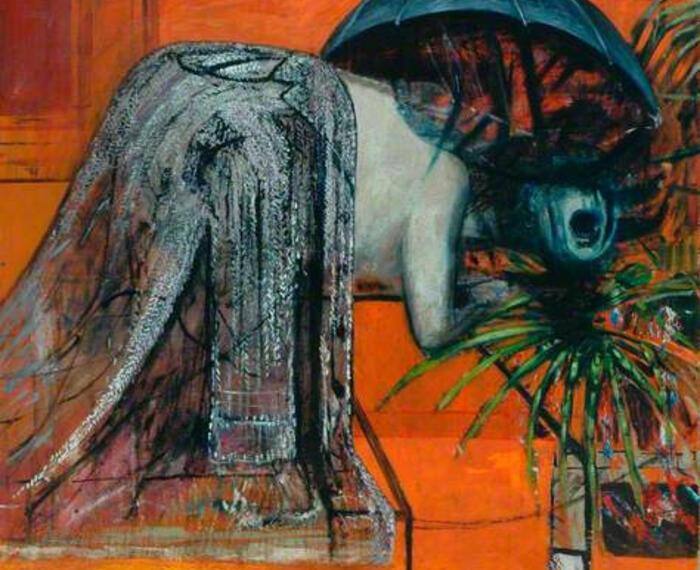Rosie Hastings and Hannah Quinlan are a multidisciplinary artist duo who interrogate the iconography of queer culture through sound, moving image, live events, paintings and drawings. They map the queer landscape in myriad ways, creating bodies of work that place under-represented narratives at the forefront of their practice.
The fresco Republic (2020) based on Andrea Mantegna’s The Flagellation, with the Pavement (c.1475–80), a drawing of Christ being whipped in the street, considers the figure of the woman as she enters the public forum, a psychologically complex terrain. In contrast to Mantegna’s drawing, in which everyone is male, Republic is populated by women apparently in states of anger or distress. No one is making eye contact. A melodramatic tableau of fractious individuals, the work could be read as a satire of infighting over what the term ‘lesbian’ means, and what might count as its collective politics.
In recent years, The Hepworth Wakefield has developed its collecting policy to redress the imbalance of gender of the artists as well as the paucity of artists from diverse and marginalised communities. Hannah Quinlan and Rosie Hastings explore the politics of queer spaces in contemporary society, spaces that are increasingly contested and challenged by heteronormative social and economic policies. While under-represented, recent research into the museum’s collection has brought to the fore some of the queer artists working throughout the twentieth century – including Keith Vaughan, Wilfred Avery and David Hockney – each of whom addressed their position as queer artists in a rapidly changing society, though often indirectly in their choice of subjects. Quinlan and Hastings place these issues at the centre of their art, and a major work such as Republic provides an essential way for the museum to link these themes and narratives from the historic collection through to artists working today. It will join other works by artists acquired through the Contemporary Art Society, including Ro Robertson and Magali Reus, who explore queer materialities and identities.

